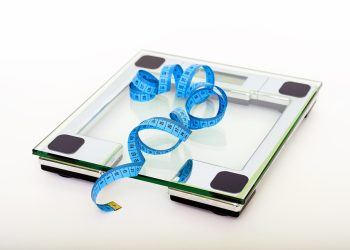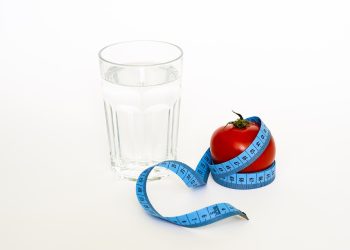Understanding Belly Fat: More Than Just a Cosmetic Concern
Belly fat, also known as visceral fat, is more than just an aesthetic issue. It’s a type of fat that accumulates around your abdominal organs and is strongly linked to several serious health problems. Unlike subcutaneous fat, which lies just beneath the skin, visceral fat actively produces hormones and inflammatory substances that can disrupt your body’s normal functions.
High levels of visceral fat are associated with:
- Type 2 diabetes
- Heart disease
- High blood pressure
- Certain types of cancer
- Metabolic syndrome
- Stroke
Therefore, reducing belly fat isn’t just about looking good; it’s about improving your overall health and reducing your risk of chronic diseases.
The Science of Belly Fat Loss: How Your Body Works
Belly fat loss is a multifaceted process that involves understanding how your body stores and burns fat. To lose belly fat effectively, you need to create a calorie deficit, meaning you burn more calories than you consume. This forces your body to tap into its fat reserves for energy, including the stubborn belly fat.
Here’s a breakdown of the key factors involved:
- Calorie Deficit: The cornerstone of weight loss. Aim for a deficit of 500-750 calories per day for a healthy and sustainable rate of weight loss (around 1-2 pounds per week).
- Hormonal Balance: Hormones like insulin, cortisol, and growth hormone play crucial roles in fat storage and burning. Stress, lack of sleep, and poor diet can disrupt these hormonal balances, hindering fat loss.
- Metabolism: Your metabolism is the process by which your body converts food and drinks into energy. Factors like age, muscle mass, and genetics influence your metabolic rate.
- Genetics: While you can’t change your genes, they can influence where your body tends to store fat. However, lifestyle factors have a much greater impact on your overall health and body composition.
Top Strategies for Effective Belly Fat Loss
Now that we’ve covered the basics, let’s dive into practical strategies you can implement to lose belly fat and improve your health:
1. Prioritize a Healthy Diet
Your diet is arguably the most critical factor in belly fat loss. Focus on consuming whole, unprocessed foods and limiting your intake of sugary drinks, processed foods, and unhealthy fats.
- Eat Plenty of Protein: Protein is essential for building and maintaining muscle mass, which helps boost your metabolism. Good sources of protein include lean meats, poultry, fish, eggs, beans, lentils, and tofu. Aim for 0.8-1 gram of protein per pound of body weight.
- Load Up on Fiber: Fiber helps you feel full and satisfied, reducing your overall calorie intake. It also helps regulate blood sugar levels and promote healthy digestion. Excellent sources of fiber include fruits, vegetables, whole grains, and legumes.
- Choose Healthy Fats: Not all fats are created equal. Focus on consuming healthy fats like monounsaturated and polyunsaturated fats, found in foods like avocados, nuts, seeds, olive oil, and fatty fish. Limit your intake of saturated and trans fats, found in processed foods, red meat, and fried foods.
- Limit Added Sugars: Sugary drinks and processed foods are packed with empty calories and can lead to insulin resistance and increased belly fat. Avoid soda, juice, candy, pastries, and other sugary treats.
- Reduce Processed Foods: Processed foods are often high in calories, unhealthy fats, and added sugars. They can also be addictive and lead to overeating. Focus on cooking meals at home using fresh, whole ingredients.
Example Meal Plan:
- Breakfast: Oatmeal with berries and nuts, or scrambled eggs with vegetables.
- Lunch: Grilled chicken salad with mixed greens and avocado, or lentil soup with whole-wheat bread.
- Dinner: Baked salmon with roasted vegetables, or lean ground turkey stir-fry with brown rice.
- Snacks: Apple slices with almond butter, a handful of nuts, or Greek yogurt with berries.
2. Embrace Regular Exercise
Exercise is another crucial component of belly fat loss. Both cardiovascular exercise and strength training are effective for burning calories and building muscle mass.
- Cardiovascular Exercise: Activities like running, swimming, cycling, and brisk walking help burn calories and improve your cardiovascular health. Aim for at least 150 minutes of moderate-intensity or 75 minutes of vigorous-intensity cardiovascular exercise per week.
- Strength Training: Lifting weights or using resistance bands helps build muscle mass, which boosts your metabolism and helps you burn more calories at rest. Aim for strength training at least two days per week, focusing on all major muscle groups.
- High-Intensity Interval Training (HIIT): HIIT involves short bursts of intense exercise followed by brief recovery periods. It’s a highly effective way to burn calories and improve your cardiovascular fitness in a short amount of time.
Example Exercise Routine:
- Monday: Strength training (full body)
- Tuesday: 30-minute brisk walk
- Wednesday: HIIT workout (20 minutes)
- Thursday: Rest or active recovery (yoga, stretching)
- Friday: Strength training (full body)
- Saturday: Long walk or hike
- Sunday: Rest
3. Manage Stress Levels
Chronic stress can lead to increased levels of cortisol, a hormone that promotes fat storage, particularly in the abdominal area. Managing stress is crucial for belly fat loss.
- Practice Relaxation Techniques: Meditation, deep breathing exercises, yoga, and spending time in nature can help reduce stress levels.
- Get Enough Sleep: Lack of sleep can disrupt your hormonal balance and increase cortisol levels. Aim for 7-8 hours of quality sleep per night.
- Engage in Hobbies: Spending time doing things you enjoy can help reduce stress and improve your overall well-being.
- Social Support: Connect with friends and family and build a strong support network. Talking to others can help you cope with stress and feel more connected.
4. Prioritize Sleep
As mentioned above, sleep is crucial for hormonal balance and stress management. Insufficient sleep can lead to increased cortisol levels, decreased insulin sensitivity, and increased cravings for unhealthy foods.
- Establish a Regular Sleep Schedule: Go to bed and wake up at the same time each day, even on weekends, to regulate your body’s natural sleep-wake cycle.
- Create a Relaxing Bedtime Routine: Avoid screen time before bed, take a warm bath, read a book, or listen to calming music to prepare your body for sleep.
- Optimize Your Sleep Environment: Make sure your bedroom is dark, quiet, and cool.
- Avoid Caffeine and Alcohol Before Bed: These substances can interfere with your sleep.
5. Stay Hydrated
Drinking plenty of water is essential for overall health and can also aid in weight loss. Water helps you feel full, boosts your metabolism, and helps your body flush out toxins.
- Drink Water Throughout the Day: Aim for at least 8 glasses of water per day.
- Drink Water Before Meals: This can help you feel full and reduce your calorie intake.
- Carry a Water Bottle: Keep a water bottle with you throughout the day to remind you to drink water.
- Choose Water Over Sugary Drinks: Replace soda, juice, and other sugary drinks with water.
6. Consider Intermittent Fasting (Optional)
Intermittent fasting (IF) is an eating pattern that involves cycling between periods of eating and fasting. While not for everyone, some studies suggest that IF can be an effective strategy for weight loss and belly fat reduction.
Common IF methods include:
- 16/8 Method: Fasting for 16 hours each day and eating all your meals within an 8-hour window.
- 5:2 Diet: Eating normally for 5 days a week and restricting your calorie intake to 500-600 calories on the other 2 days.
- Eat-Stop-Eat: Fasting for 24 hours once or twice per week.
Important Note: If you have any underlying health conditions, such as diabetes or an eating disorder, consult with your doctor before trying intermittent fasting.
7. Limit Alcohol Consumption
Alcohol is high in calories and can interfere with fat burning. It can also lead to increased appetite and poor food choices.
- Limit Your Intake: If you choose to drink alcohol, do so in moderation. This means no more than one drink per day for women and no more than two drinks per day for men.
- Choose Lower-Calorie Options: Opt for light beer, wine, or spirits mixed with calorie-free mixers.
- Drink Plenty of Water: Alternate alcoholic beverages with water to stay hydrated and reduce your overall alcohol consumption.
Tracking Your Progress
Monitoring your progress is essential for staying motivated and making adjustments to your plan as needed. Here are some ways to track your progress:
- Weigh Yourself Regularly: Weigh yourself once or twice per week at the same time of day.
- Measure Your Waist Circumference: Measure your waist circumference at the narrowest point of your waist. A healthy waist circumference is less than 35 inches for women and less than 40 inches for men.
- Take Progress Photos: Take photos of yourself every few weeks to visually track your progress.
- Track Your Food Intake: Use a food diary or app to track your calorie and macronutrient intake.
- Monitor Your Exercise: Track your workouts and progress over time.
Conclusion: A Journey to a Healthier You
Losing belly fat requires a holistic approach that combines a healthy diet, regular exercise, stress management, and adequate sleep. It’s a journey that takes time and effort, but the health benefits are well worth it. Remember to be patient with yourself, stay consistent, and celebrate your successes along the way. By implementing these strategies, you can achieve a flatter stomach, improved health, and a healthier, happier you.
FAQs About Belly Fat Loss
Here are some frequently asked questions about belly fat loss:
Q: Can I target belly fat specifically with exercise?
A: While you can’t spot-reduce fat, focusing on exercises that strengthen your core muscles, such as planks, crunches, and Russian twists, can help improve your abdominal tone and posture.
Q: How long does it take to lose belly fat?
A: The amount of time it takes to lose belly fat varies depending on your individual factors, such as your starting weight, metabolism, and adherence to your diet and exercise plan. Aim for a sustainable rate of weight loss of 1-2 pounds per week.
Q: Are there any supplements that can help with belly fat loss?
A: While some supplements may claim to help with belly fat loss, it’s important to be cautious and do your research. Many supplements are not regulated and may have harmful side effects. It’s always best to focus on a healthy diet and exercise plan rather than relying on supplements.
Q: What are some healthy snack options for belly fat loss?
A: Some healthy snack options include apple slices with almond butter, a handful of nuts, Greek yogurt with berries, hard-boiled eggs, and vegetables with hummus.
Q: Is it possible to lose belly fat after menopause?
A: Yes, it is possible to lose belly fat after menopause. However, it may require more effort due to hormonal changes and a decrease in metabolism. Focus on a healthy diet, regular exercise, and stress management to help you lose belly fat and improve your overall health.
Q: What are the best types of cardio for burning belly fat?
A: The best types of cardio for burning belly fat are those that you enjoy and can do consistently. Some effective options include running, swimming, cycling, brisk walking, and HIIT workouts.
Q: How important is sleep for losing belly fat?
A: Sleep is extremely important for losing belly fat. Lack of sleep can disrupt your hormonal balance, increase cortisol levels, and increase cravings for unhealthy foods. Aim for 7-8 hours of quality sleep per night.
Q: Can stress cause belly fat?
A: Yes, chronic stress can lead to increased levels of cortisol, a hormone that promotes fat storage, particularly in the abdominal area. Managing stress is crucial for belly fat loss.
Q: What is the best diet for losing belly fat?
A: There is no one-size-fits-all diet for losing belly fat. However, a diet that is high in protein, fiber, and healthy fats, and low in added sugars and processed foods, is generally effective.
Q: Should I see a doctor or registered dietitian for help with belly fat loss?
A: If you have any underlying health conditions or are struggling to lose belly fat on your own, it’s a good idea to consult with a doctor or registered dietitian. They can help you develop a personalized plan that is safe and effective for you.












